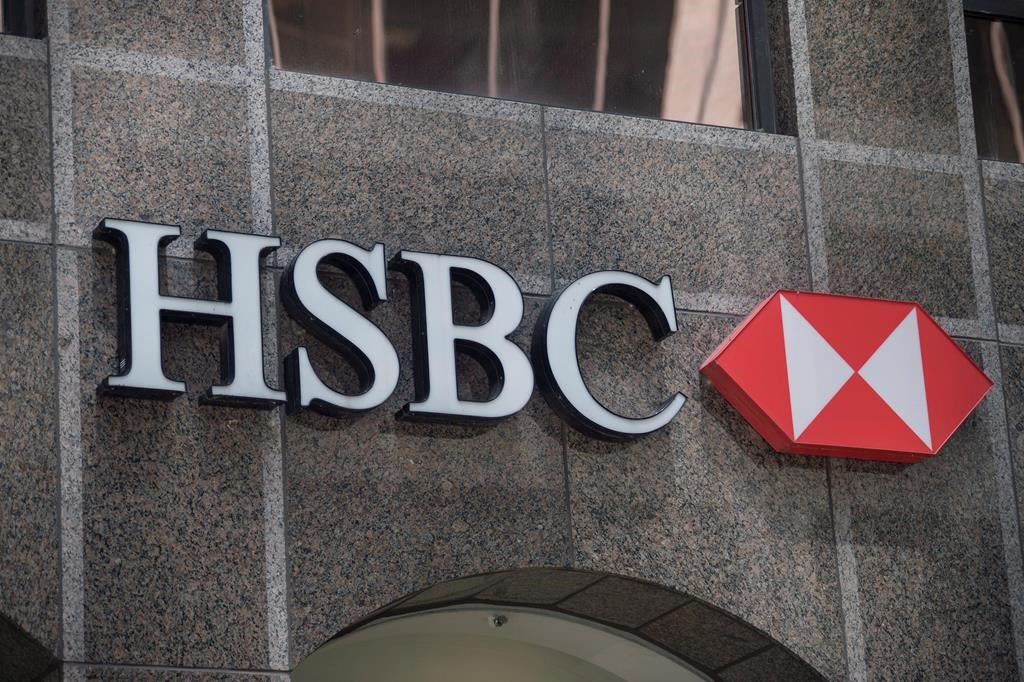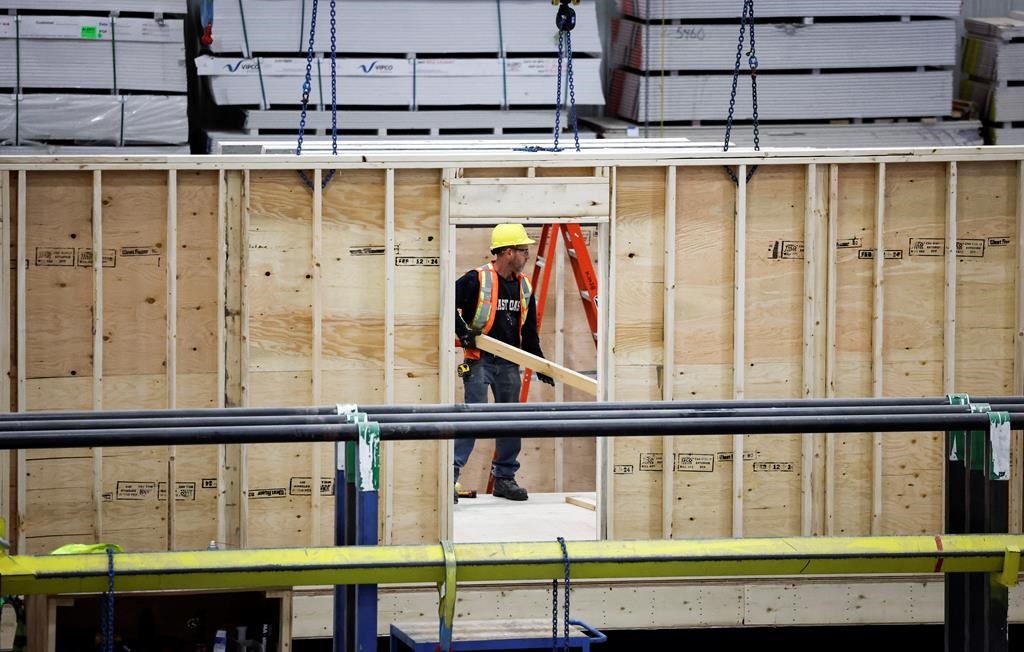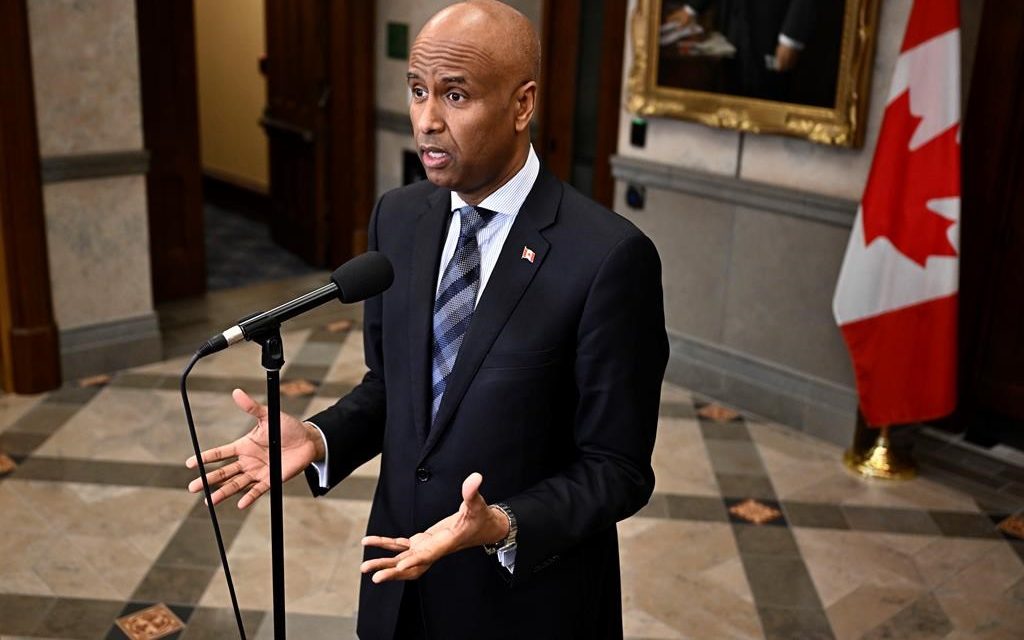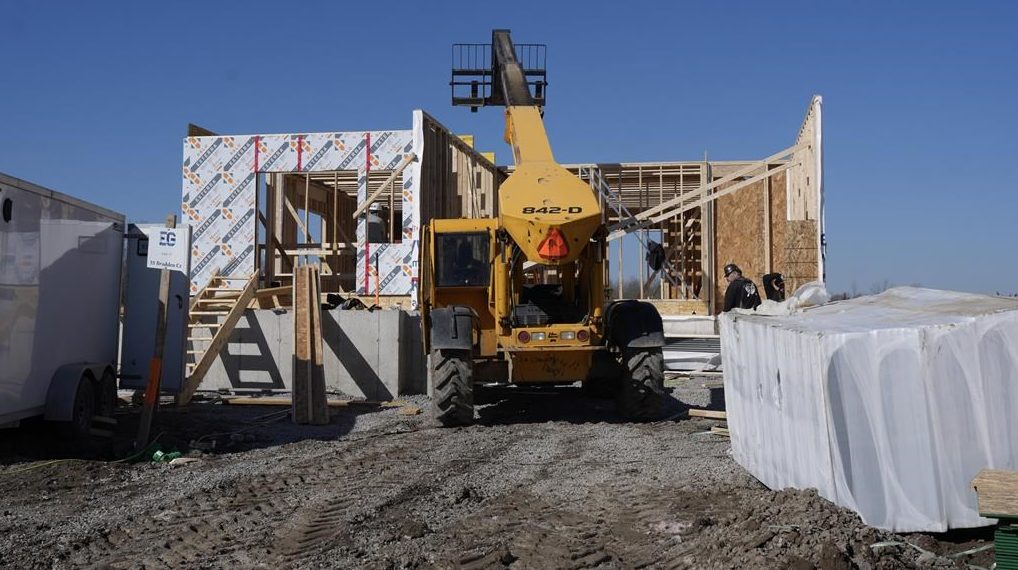With looming NAFTA deadline and intensive talks, Freeland postpones UN speech
Posted September 29, 2018 9:34 am.
Last Updated September 29, 2018 5:50 pm.
This article is more than 5 years old.
WASHINGTON – Foreign Affairs Minister Chrystia Freeland postponed her marquee United Nations speech Saturday as negotiators on both sides of the Canada-U.S. border continued their full-court press for a breakthrough on a North American free-trade deal.
Officials in Freeland’s office say the minister, who had been scheduled to deliver Canada’s address to the General Assembly, exchanged her slot with another country and will instead speak on Monday.
That’s an important date in the NAFTA calendar: Congress has declared an Oct. 1 deadline for Canada to join an existing agreement between the U.S. and Mexico in time for a vote on Capitol Hill, and it’s also the day voters in Quebec go to the polls.
Quebec, which is home to half of Canada’s dairy industry, has become an important political fulcrum in the talks, particularly if Canada agrees to concessions that would improve access to the country’s dairy market for U.S. producers.
And despite the fact that dairy remains a popular talking point for people like U.S. President Donald Trump and his trade ambassador, Robert Lighthizer, sources familiar with the talks say it’s no longer a hurdle.
Other sources say Freeland took part in a lengthy conference call Friday night with negotiators and their U.S. counterparts in Washington, who have been taking part in intensive talks all week.
“The U.S. knows what they need to do to get a deal, so it’s really up to them,” said one, speaking on condition of anonymity given the sensitive nature of the talks.
“We’re focused on the substance, not the timetable.”
The most contentious issues continue to be preserving Canada’s cultural exemption and Canada’s insistence on preserving Chapter 19, which allows for independent panels to resolve disputes involving companies and governments.
Canada also wants assurances it will no longer be subject to heavy American tariffs on steel and aluminum exports, as well as autos — a weapon Trump has made clear in recent months is his preferred cudgel for beating up on trade partners he believes are mistreating the U.S.
As of now, Canada appears content to conduct the negotiations via conference call — a departure from its earlier strategy, which saw Freeland racking up the frequent-flyer miles as she jetted back and forth between Washington and Ottawa.
In an eyebrow-raising news conference Wednesday at the UN, Trump hinted at personal animus between Lighthizer and Freeland when he claimed that he rejected a Canadian request for a face-to-face meeting with Prime Minister Justin Trudeau — a request Ottawa flatly denied making.
“We’re very unhappy with the negotiations and the negotiating style of Canada,” Trump said. “We don’t like their representative very much.”
The formal text of the U.S.-Mexico deal must be released by Sunday so it can be presented to the U.S. Congress by the end of the month, fulfilling a 60-day notice requirement that would allow lawmakers to approve it by Dec. 1 before the newly-elected Mexican government takes power.
Fears have persisted that Congress would be willing to press ahead with the bilateral agreement if Canada can’t get a deal done. Mexico’s new president-elect, however, said in an interview Friday that he has agreed to push the American side to make a deal with Canada.
Mexico and the United States announced their own bilateral deal last month, sparking a renewed round of negotiations between Washington and Ottawa to bring Canada into the NAFTA fold.
One source says Chapter 19 has not survived the Mexico-U.S. deal, but Chapter 20, the government-to-government dispute settlement mechanism, has been preserved in its entirety.
Mexican ambassador Dionisio Perez Jacome said his country still wants Canada to come on board, regardless of congressional deadlines.
“Hopefully Canada can be included already in the text. If not, then the process gets more complicated, but it’s also possible to come in … some days after.”
Sources say Mexico is fine with the Trudeau government waiting past Monday’s Quebec election because it understands any concession it might be willing to make on allowing greater U.S. access to dairy would be a political bombshell in the final days of the provincial campaign.
There’s no guarantee Congress would allow Trump to move forward with a two-country deal that excludes Canada because it originally granted him the authority to negotiate a three-country pact.
Trump says he will pursue a trade deal with or without Canada, and has repeatedly threatened to impose punitive tariffs on Canadian automobiles if a trilateral deal can’t be reached.
Trump has already imposed hefty steel and aluminum tariffs on Canada and Mexico, using a section of U.S. trade law that gives him the authority to do so for national security reasons.
The Trudeau government has branded the 232 tariffs illegal and insulting given the close security relationship between Canada and the U.S., including their shared membership in Norad, which defends North American airspace.
— With files from Mike Blanchfield in Ottawa.








